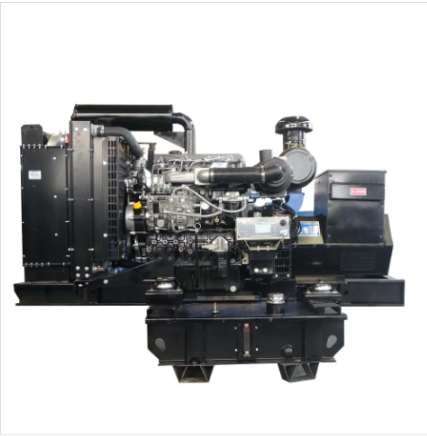Ძველი ფაქტორები აირჩიებისას Დიზელის წყალოვანი ბურთი
Გარკვეული სხვაობების მიმართულება განსხვავებულ აპლიკაციებისთვის
Დიზელის წყლის ტუმბოს შერჩევა იწყება იმის გარკვევით, თუ რა სახის ნაკადის სიჩქარე სჭირდება სამუშაოს. ნაკადის სიჩქარე ჩვეულებრივ იზომება გალონებში წუთში (GPM) ან ლიტრებში წუთში (LPM), და ეს რიცხვები მნიშვნელოვნად იცვლება იმის დამოკიდებულებით, თუ როგორ იქნება გამოყენებული ტუმბო. მაგალითად, სამეურნეო საქმიანობებს სჭირდებათ ბევრად მეტი წყლის გატარება, ვიდრე ეს ჩვეულებრივ არის უკანა ბაღების ან პატარა სახლების მოვლის შემთხვევაში. რატომ? იმიტომ, რომ მთელი სახელმწიფო სასურველზე მეტი წყალი სჭირდება. ჭკვიანი მყიდველები უნდა ფიქრობდნენ მომავლის შესახებაც. მიიღეთ რამე, რაც შეძლებს მოთხოვნების მატარებელს მომავალში, ვიდრე იხილავთ იაფს ახლა და შეცვლით მას მომავალში, როდესაც რამე გაიზარდება ან შეიცვლება. წინასწარ დაგეგმვა დიდ ხანგრძლივობაში ფულის დახმარებას გაუწევს.
Სიმაღლის წნევის სპეციფიკაციები და გამოსავალი
Მნიშვნელოვანია გავიგოთ თავის წნევაზე დამატებითი ინფორმაცია, რადგან ეს განსაზღვრავს, თუ რამდენად კარგად შეძლებს დიზელის წყლის ტუმბოს წყლის გადატანას სხვადასხვა ადგილზე და სიმაღლეზე. რასაც სრული დინამიური თავი (TDH) უწოდებენ, იმას ნიშნავს, რომ ერთად უნდა შევკრიბოთ ვერტიკალური მანძილი, რომელზეც წყალი უნდა ავიდეს, და ხახუნის დანაკარგი მილების კედლებზე. როდესაც გავიგებთ, თუ რა სახის TDH სჭირდება ჩვენს სისტემას, სინამდვილეში ვგეგმავთ, მიაღწევს თუ არა წყალი საჭირო ადგილს, მიუხედავად იმისა, აი ამ ადგილის სიმაღლეზე ავიდეს თუ გრავიტაციის წინააღმდეგ გადაიჭრება მანძილი. უმეტესობა მწარმოებლის სპეციფიკაციებსა და წარმოების გრაფიკებს ამოწმებს, რათა იპოვონ ტუმბოები, რომლებიც შეესაბამებიან მათ TDH მოთხოვნების ქვედა და ზედა ზღვარს. გამჭვირვალე ინსტალატორები ყოველთვის ირჩევენ ტუმბოებს, რომელთა თავის წნევის მაჩვენებლები ახლოს არის სინამდვილეში ველის პირობებთან, ვიდრე უბრალოდ ყველაზე იაფი ვარიანტის არჩევას უპირებენ.
Საწვავის ეფექტიურობა და მუშაობის ხარჯები
Როდესაც ირჩევთ დიზელის წყლის ტუმბოს, საწვავის ეფექტურობა ძალიან მნიშვნელოვანია, ვინაიდან ის გავლენას ახდენს იმ თანხაზე, რომელიც დახარჯულია მოწყობილობის ყოველდღიურად გამოყენებაზე. სხვადასხვა ტუმბოს საწვავის ხარჯზე და მის მიმართ გაცემული ძალაზე დაკვირვება იძლევა კარგ წარმოდგენას იმაზე, თუ რომელი მოდელებია ყველაზე უკეთესი ბიუჯეტის მქონე მომხმარებლებისთვის. უკეთესი მოდელები ხშირად ამცირებენ საწვავის ხარჯს საგულისხმოდ, რაც ნიშნავს რეალური დაზოგვის მიღწევას მომდევნო პერიოდში. მიუთითებს აზრს ასევე საველე გამოცდების ან მრეწველობის მოხსენებების მონაცემების შემოწმება საწვავის დაზოგვის შესახებ. ასეთი ინფორმაცია ხშირად აჩვენებს, თუ რამდენად მნიშვნელოვანია საწვავზე დაზოგული თანხა ბიზნესისთვის, რომელიც აირჩევს ნამდვილად ეფექტურ ტუმბოებს. ჭკვიანი ოპერატორები ყოველთვის ამ საწვავის დაზოგვის შესაძლებლობებზე ყურის მიაქცევენ, ვინაიდან ხარჯების შეკვეცა სამუშაოს სწორად შესრულებით არის ის, რაც ნებისმიერი სამუშაოს გულდასმით მართვას უზრუნველყოფს დახარჯული ბიუჯეტის გარეშე.
Მდგომარეობის გამარტივება რთულ გარემოებში
Როდესაც დიზელის წყლის ტუმბოს არჩევას აპირებთ, მისი მარაგის ხანგრძლივობა მნიშვნელოვან როლს თამაშობს, თუ გსურთ მას რთულ პირობებში გაძლება. ყურადღება მიაქციეთ ტუმბოებს, რომლებიც დამზადებულია ისეთი მასალებისგან, რომლებიც წინ აღმართულნი არიან რჟავისა და ცვეთის წინააღმდეგ, განსაკუთრებით მნიშვნელოვანია მარილიანი წყლის არეებში ან მინდვრებში, სადაც მანქანა ყოველდღიურად დაბრუნდება ამინდისა და მტვრის მოქმედებას. შეამოწმეთ სერტიფიკატები, რომლებიც აჩვენებენ, თუ როგორ უძლებს ის სიცხის ექსტრემალურ პირობებს ან უწყვეტ მუშაობას გასატეხად. ბევრი კომპანია სავარაუდოდ ამოწმებს ტუმბოებს რეალურ პირობებში ბაზარზე გასვლამდე. ასეთი ტესტები ხშირად აჩვენებს, თუ გამძლეა თუ არა კონკრეტული მოდელი ხანგრძლივი დამუშაობის პირობებში. მაგარი დამზადება გადახურვის საწინააღმდეგო დამცავი დამატებით ნიშნავს მომსახურების ხანგრძლივობას და ნაკლებ პრობლემას, როდესაც პირობები რთული ხდება. საუკეთესო შედეგების მისაღებად აირჩიეთ ბრენდები, რომლებმაც მიღწეული აქვთ პატივი საუკმეში იმ მანქანების დამზადებაში, რომლებიც გამძლეა ნებისმიერი გამოწვევის წინააღმდეგ.
Ჩვენილების ტიპების მორგება კონკრეტულ გამოყენების შემთხვევაში
Სამზარეულო ირიგაციის სისტემები
Ფერმის მოწყობისთვის სწორი ტიპის გადამგების არჩევა არ ნიშნავს მხოლოდ იმას, რომ ყიდულობთ იმას, რაც უკეთესად მუშაობს ნებისმიერ მაღაზიაში. მიწათმოქმედების კარგი მოსავლის მისაღებად და ეფექტური წყლის გამოყენების უზრუნველსაყოფად მიწათმოქმედების მიხედვით, მიწათმოქმედების საჭიროა იცოდნენ, თითოეული ტიპის გადამგების შესაძლებლობები. დიდი ფერმები ხშირად ირჩევენ გადამგებებს, რომლებსაც მაღალი მოცულობა აქვთ, განსაკუთრებით მაშინ, როდესაც საქმე გვაქვს წვეტის მიცემის ხაზებთან ან დიდი ზომის ტბობის მოწყობილობებთან. საქმე იმაშია, რომ განსხვავებული ტიპის მიცემის მეთოდები სრულიად განსხვავებულ მოთხოვნებს უდგებიან გადამგებს. წვეტის სისტემები ხშირად იმუშავებენ ნაკლები სიჩქარით, ხოლო ტბობის მიცემის სისტემებს სჭირდებათ გადამგები, რომელიც წყალს ატარებს დიდ მანძილზე. წყლის მოხმარების კანონები რეგიონების მიხედვით სხვადასხვაა. ზოგიერთ ადგილში მკაცრი წესებია წყლის გამოყენების მოცულობისა და გადამგებების ტიპების შესახებ, რომლებიც დამოკიდებულია ადგილობრივ პირობებზე. ამ წესების დაცვა საჭიროა როგორც კანონის დასაცავად, ასევე რესურსების ეფექტური მართვისთვის. საბოლოოდ, გადამგების პარამეტრების შესაბამისობა ველის მოთხოვნებთან, მოსავლის ტიპთან და ადგილობრივ წესებთან ერთად უზრუნველყოფს გამომავალის გაზრდას და წყლის რესურსების დაზოგვას.
Სამშენებლო ტერიტორიის წყალის გამოღება
Დიზელის წყლის ტუმბოები არის აუცილებელი მასალა სამშენებლო მოედნებზე, სადაც ისინი ხელს უწყობენ სარკის წყლის დონის კონტროლს და აჩერებენ გაყინვის პრობლემებს სანამ ისინი დაიწყებიან. როდესაც სამშენებლო მოედნის გაშრობაზე მუშაობენ, მომხმარებლებს სჭირდებათ ტუმბოების არჩევა, რომლებიც შეესაბამებიან გარკვეულ ნაკადის სიჩქარეს და წნევის მოთხოვნებს, რათა წყალი საკმარისად სწრაფად გადაადგილდეს და მუშაობის ადგილი შენარჩუნდეს მშრალი. კარგი წყლის მართვა ყველაზე მნიშვნელოვან განსხვავებას ქმნის ვადების დასაცავად. შეხედეთ სამშენებლო მოედნებს ძლიერი ძრავის ტუმბოებით, რომლებიც შეძლებენ მაღალი წნევის მოთხოვნების დაკმაყოფილებას, ასეთი მოედნები უფრო სწრაფად ასრულებენ წყლის გასუფთავებას, რაც ნიშნავს, რომ მუშაები შეძლებენ დაბრუნდნენ მშენებლობაზე და არ დაგვიანდებიან. გამოცდილება აჩვენებს, რომ ტუმბოს სპეციფიკაციების სწორად არჩევა შეუნარჩუნებს დროს და ფულს მომდევნო პროექტებში, როდესაც პროექტები გრძელდება დაგეგმნილზე მეტი ხანი. ამ ნაწილის სწორად გაკეთება ყველას უფრო უსაფრთხოებას უზრუნველყოფს და მთლიანად უფრო გლუვ მოვლენებს უზრუნველყოფს, რაც ახსნის მიზეზს, რის გამოც ტუმბოები დაუმორჩილებელ ინსტრუმენტებად რჩებიან ნებისმიერი სერიოზული სამშენებლო გაშრობის სამუშაოებისთვის.
Გამოსაშუქებელი წყალის ერთადერთი სიტუაცია
Წყლის უეცრად დატოვების შემთხვევაში, დიზელის წყლის პომპები აუცილებელ მოწყობილობებად იქცევიან, ვინაიდან ისინი სწრაფად შეიძლება განთავსდნენ და ეფექტურად მართონ წყლის დიდი მოცულობები. ამ პომპებს მნიშვნელოვანი როლი აქვთ საოპასუნო პასუხის მიცემაში, ამიტომ ყველაზე მნიშვნელოვანია მათი მობილურობა, კარგი ნაკადის შესაძლებლობა და სწრაფი დაყენების დრო. იმ მომენტებში, როდესაც მომატებული წყლები აფრთხილებენ შენობებსა და მიდამოებს, ამ პომპების სწრაფად გაშვება ყველაზე მეტად განსაზღვრავს განსხვავებას. საველე გუნდებისთვის მნიშვნელოვანია ის, თუ როგორ მარტივად გადაადგილდებიან ეს მოწყობილობები, არის თუ არა ისინი მდგრადი დატვირთვის დროს და მუშაობს თუ არა ისინი სხვადასხვა გარემოში. ისტორიული წყლის დატოვების შემთხვევების გადახედვა აჩვენებს, თუ რამდენად კარგად ასრულებენ დიზელის პომპები ზიანის შემსუბუქების დავალებას, რაც ბევრი ადგილობრივი ხელისუფლების მიერ გამოცდილებით დადასტურდა. წყლის სწრაფად ამოღებისა და სუსტი ზონების დაცვის შესაძლებლობით, დიზელის პომპები განაგრძობენ სახელმწიფო წყლის კონტროლის ძირითადი საშუალებების როლს, ხშირად გარდაქმნით იმ მოვლენების, რომლებიც კატასტროფული შესაძლოა იყოს, ისეთ მდგომარეობად, რომელსაც საზოგადოებები მაინც შეძლებენ მართვას.
Მაღალი სიგრძის მართვის ფაქტორები
Რекომენდებული სერვისის ინტერვალები
Მნიშვნელოვანია ვიცოდეთ, როდის უნდა შევასრულოთ დიზელის წყლის ტუმბოს სერვისი მწარმოებლის მითითებების შესაბამისად, თუ გვინდა, რომ ის უფრო მეტი იმუშაოს და უკეთ მუშაობდეს. სტანდარტული პროცედურები, როგორიცაა ძრავის ზეთის შეცვლა, ფილტრების შეცვლა და სისტემის ყველა ნაწილის გადამოწმება ხელს უწყობს უსაშინაოდ მუშაობას. როდესაც ადამიანები ამ მომსახურების გრაფიკს ემორჩილებიან, სინამდვილეში ისინი ტუმბოებს ბევრად მეტ წელზე გამოიყენებენ მათი კარგი მუშაობის შენარჩუნებით. უმეტესობა ტექნიკოსებისა ნებისმიერ ადამიანს მოუხსენიებს, რომ გამოსავალი მომსახურება თავიდან ავიცილებს ძვირად შეკეთებას და აცილებს სისტემის მოულოდნელ გამართულობას. ტუმბოს მწარმოებლები თავად ხშირად აწვებიან ამ მომსახურების ვადების დაცვაზე, რადგან ეს უზრუნველყოფს სისტემის მაქსიმალურ ეფექტუალურ მუშაობას, რაც გრძელვადიან პერსპექტივაში საიმედოობისა და ხარჯების მხრივ გამართლებულია.
Ცივი ამინდის მუშაობის განვითარება
Დიზელის წყლის პუმპების გაშვება გარეთ ძალიან ცივი ამინდის დროს შეიძლება გამოწვიოს სხვადასხვა პრობლემები, ძირითადად იმიტომ, რომ საწვავი ხდება ჟელის მსგავსი და მექანიკური ნაწილები უბრალოდ არ იმუშავებს სწორად. ზამთრის პირობებისთვის მომზადება აუცილებელია, თუ გვინდა, რომ ჩვენი პუმპები სწორად იმუშაოს. ყველაზე ხშირად ირჩევენ დიზელის სისტემებისთვის განკუთვნილ მაღალხარისხიან სითხეებს, ასევე ახლოებულ კომპონენტებს ახვევენ, რომ საკმარისად გათბული იყოს მათი ფუნქციონირება. ბევრი შემთხვევა გვხვდება, როდესაც დიზელის ძრავები უბრალოდ უარს ამბობენ დაწყებაზე ან გლუვად მუშაობაზე, როდესაც ტემპერატურა იკლებს ყინვის ზედა ზღვარს. ამიტომ ზამთრის მომზადება აუცილებელია. ბევრი გამოცდილი ტექნიკოსი გვეუბნება, რომ დაგეგმვა და მზადყოფნა ცივ ამინდში მუშაობისთვის დროსა და ფულში დაზოგავს, რათა შენარჩუნდეს წყლის პუმპის სისტემების მუშაობა მკაცრი ბუნების პირობებშიც კი.
Სანახაზე საუკეთესო პრაქტიკები
Მნიშვნელოვანია დიზელის ტუმბოების სათანადო შენახვა გაუქმების პერიოდში, თუ ისინი ხელმისაწვდომია. საუკეთესო გზა არის ამ მანქანების დაცვა წვიმისა და თოვლისგან, ასევე განსაკუთრებით სიცივისა და სიცხისგან, ხოლო მტვრის დაგროვების თავიდან ასაცილებლად უნდა მოვეკიდოთ დროულად. საწვავის ხარისხი ასევე მნიშვნელოვანია, ვინაიდან ძველი საწვავი შეიძლება გაუმკლავდეს მანქანას გაშვებისას. ბევრი მომხმარებელი სასარგებლოდ ახდენს შენახული ჩანაწერების შესახებ იმაზე, თუ როდი მოხდა შენარჩუნება და როდი იყო მანქანა ბოლოჯერ გამოყენებული, რაც საშუალებას გვაძლევს უფრო იოლად დავაკვირდეთ მომსახურების ინტერვალებს. მცირე ყურადღება შენახვის დეტალებზე გრძელ მომავალში უზრუნველყოფს ტუმბოების უსაფრთხო გაშვებას და მათ ხანგრძლივობას.
Გავრცელებული შეცდომების გამოსასარგებლად
Ძალის მოთხოვნების შეფასების დაშორება
Დიზელის წყლის ტუმბოს არჩევისას ადამიანების წინაშე გაჩნდა ერთი მნიშვნელოვანი პრობლემა, რომელიც მოდის სიმძლავრის არასწორ გაანგარიშებას. სიმძლავრის არ მოსახერხებელი ნიშნავს, რომ სისტემა უარესად იმუშავებს ან შეიძლება საერთოდ გაჩერდეს. რიცხვების სწორად გამოთვლა მნიშვნელოვანია, თუ გვინდა, რომ ყველაფერი გლუვად მიმდინარეობდეს. შეამოწმეთ ამ GPM მაჩვენებლები და დაადგინეთ, რა სახის წნევა სჭირდება სისტემას. ეს რიცხვები გვეუბნებიან, თუ რომელი ტუმბოები შეძლებენ ჩვენი კონკრეტული მდგომარეობის მოგვარებას. ავიღოთ მაგალითად ასეთი დიდი საშრობის სისტემები. ბევრი მათგანის მძიმე პრობლემები იმიტომ გაჩნდა, რომ ისინი ივიდნენ ტუმბოებს, რომლებიც სამუშაოდ სუსტი აღმოჩნდა. ტუმბოებმა ვერ მიაწოდა საჭირო წნევით საკმარისი რაოდენობის წყალი, ამიტომ მოხდა გადადება და ფულის დიდი რაოდენობა დაკარგულ იქნა, სანამ სისტემა გაუმართლებული იდგა.
Პორტატიურობის საჭიროებების გაუგების გაუმჯობეს
Მუშაობის ადგილის კარგად გააზრება მნიშვნელოვან როლს თამაშობს იმის გასაგებად, სად უფრო მარტივად გადაადგილდებიან დიზელის წყლის ტუმბოები, განსაკუთრებით რთულად ხელმისაწვდომ ადგილებში ან უხეშ ტერიტორიებზე. პორტატიულობა განსაზღვრავს, შეძლებენ თუ არა მუშაები მათ გადატანას საჭირო ადგილას და მარტივად დაყენებას. ის მოდელები, რომლებიც იშვიათად წონას აქვთ, ნაკლებ ადგილს იკავებენ და უფრო მარტივად გამოიყენებიან დახვეწილ სივრცეში. ამჟამად უმეტესობა მწარმოებელთა სხვადასხვა გადაადგილების საშუალებას სთავაზობს ტუმბოებისთვის, დაწყებული ჩვეულებრივი მისაბმელი მოწყობილობებიდან დამთავრებული ხელის დასაჭიდ წერტილებით. სპეციალისტები, რომლებიც ყოველდღიურად მუშაობენ ასეთ მოწყობილობებთან, იციან, რომ კარგი პორტატიულობა ყველაფერს განსაზღვრავს. ის ამარტივებს დაყენებას და უზრუნველყოფს უფრო გლუვ მუშაობას, თუნდაც არაიდეალურ პირობებში.
Გადახედვა ადგილობრივ გამოსავლენის წესებზე
Დიზელის მოწყობილობებისთვის ადგილობრივი გამონაბოლქვის წესების დაცვა მნიშვნულოვანია როგორც გარემოს დასაცავად, ასევე ოპერაციების სამართლიანად შესანარჩუნებლად. როდესაც კომპანიები უგულებელყოფენ ამ სტანდარტებს, ისინი სახე უხდიან დიდი ადმინისტრაციული ჯარიმების, მოწყობილობების ჩამორთმევის ან სამუშაო დაგვიანებების სახით, რამაც შეიძლება მთელი პროექტების ჩაშლა მოახდინოს. შეხედეთ იმას, რაც ამჟამად ქვეყნის მასშტაბით მიმდინარეობს, მთავრობები უფრო მკაცრად აკონტროლებენ დიზელის დაბინძურებას. წესები სწრაფად იცვლება, ამიტომ ნებისმიერმა, ვინც იყიდის ახალ მანქანებს, უნდა შეამოწმოს მოთხოვნები თავის რეგიონში შესაძენად ადრე. მოემალეთ პირდაპირ გარემოს დაცვის სააგენტოების ან საინდუსტრიო ჯგუფების თანამშრომლებს, რომლებიც იციან ბოლო მოთხოვნებს. ასეთი სავალდებულო შემოწმება უზრუნველყოფს მოწყობილობების სამართლიანი გამოყენებას და აცილებს ხარჯებიან პრობლემებს მომდევნო პროექტების დაგვიანების დროს, როდესაც ვინმე დაარღვია შესაბამისობის საკითხები.
Ხელიკრული
Რატომ არის მნიშვნელოვანი გასწვრივის სიჩქარე დიზელის წყალის ბურთის არჩევაში?
Გასწვრივის სიჩქარე განსაზღვრავს ბურთის ეფექტიურობას განსხვავებულ გამოყენებებში, სადაც მეტი სიჩქარე სჭირდება დიდ მასშტაბური აგრარული გამოყენებისთვის.
Რა არის ძირითადი ფაქტორები დიზელის ბურთის გამართლების შესახებ?
Ხანგრძლივობის ფაქტორები შემდგომია: კოროზიის წინააღმდეგობა, მართვა სასარგებლო ტემპერატურებში და მძიმე გამოყენების შესაძლებლობა.
Როგორ უნდა მოვაზრო ჩემი დიეზელის 唧筒 ენერგეტიკურად ეფექტური იყო?
Აირჩიეთ მოდელები, რომლებიც გამოჩნდება საუკეთესო საწვავის ეფექტურობით, რათა შემცირებით მოქმედების ხარჯები და მითითეთ ენერგიის შენახვის შესახებ შესაძლებლობები ფინანსურ მიმართულებისთვის.
Რა არის გავრცელებული შ Gaussian რო არსებითი დიეზელის წყალის 唧筒 აირჩევისას?
Გავრცელებული შეცდომები შედგება: ძალის მოთხოვნების დაუფასებლობა, პორტატიურობის საჭიროების გაუგლობა და გამორთველი წარმოების წესების გაუგლობა.

